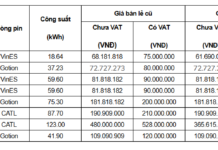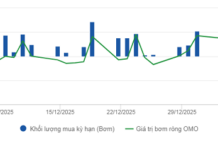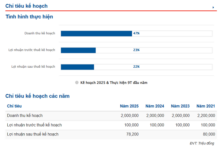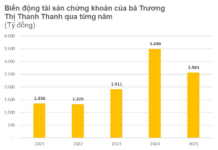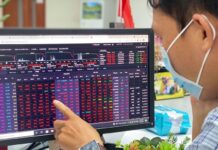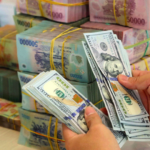On the afternoon of April 24, HCMC Business Magazine organized a workshop in coordination with Ho Chi Minh City Power Corporation (EVNHCMC) on Load Adjustment: Current Status and Solutions to Ensure Power Supply.
The workshop provided much useful information related to load adjustment and mechanisms for encouraging enterprises to coordinate with power load adjustments for about 80 large enterprises in HCMC.
Many questions by enterprises surrounding participation in power load adjustments were also directly answered by representatives of the Electricity Regulatory Authority, Electricity of Vietnam (EVN) Group, and Ho Chi Minh City Power Corporation (EVNHCMC) at the workshop.
Speaking on the sidelines of the workshop, Mr. Vo Quang Lam, EVN Deputy General Director, said that in the context of complicated weather conditions, prolonged hot spells during peak months of the hot season increase the demand for electricity, posing risks of power grid overload.

Mr. Vo Quang Lam (standing) answers business enterprises’ questions about solutions for adjusting power loads |
Power load adjustment (Demand Response – DR) aims to optimize production and business operation, contributing to ensuring continuous, stable, and safe power supply, while limiting incidents on the power system and improving service quality.
When enterprises participate in power load adjustment, they will reduce electricity usage costs by reducing electricity consumption during peak hours, enhance their competitiveness by decreasing electricity costs and product and service production costs, and increase production and business efficiency.
According to preliminary electricity industry statistics, several enterprises participating in the power load adjustment program have reduced 25-30% of their total power consumption, thereby saving nearly 15% on electricity bills.
In the first three months of the year, the nation’s commercial electricity output rose 11.42% compared to the same period in 2023. In particular, electricity for the industrial sector increased by more than 10%, the commercial service sector increased by more than 18%, and the household electricity group also increased by more than 18%.
“Looking back at electricity usage for the production sector, comparing the growth in electricity consumption to the growth in GDP, shows that electricity usage is not yet economical or efficient. Currently, it takes 370 USD to produce one unit of GDP, while developed countries only require 90-170 USD. Thus, our usage is less efficient compared to other countries,” said Mr. Lam.
Out of the 30 million electricity customers nationwide, about 4 million are manufacturing and commercial service households. In particular, the industrial customer group is using 54% of the nation’s commercial electricity. The production customer group has about 1 million customers, of which 17,000 customers use over 1 million kWh/year (5,000 enterprises are key energy users, accounting for about 34% of the nation’s commercial electricity output).
“In the current context, enterprises using over 1 million kWh of electricity, especially enterprises in the key energy user group, need to coordinate adjustments to production hours to flatten the load curve,” Mr. Lam urged.
|
In HCMC, there are currently over 1,700 customers who are manufacturing and commercial service enterprises using over 1 million kWh/year. Mr. Bui Trung Kien, EVNHCMC Deputy General Director, said that the city’s electricity industry has mobilized this group of enterprises to sign a commitment to participate in the load transfer program. “1,357 customers who are manufacturing enterprises have also signed a commitment to participate in the load adjustment program: in the event of power supply difficulties, these customers will reduce unnecessary power consumption to ensure system safety and prevent widespread power outages,” added Mr. Kien. |
T. Nhan






